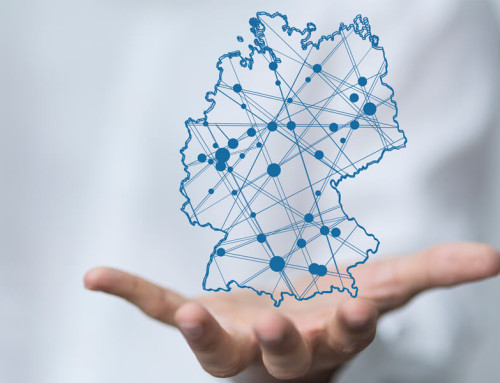A Capgemini report by order of the EU Commission shows: The open data maturity level of the 27 EU countries has increased by 10 percentage points in the wake of the pandemic. Germany enters the top ten for the first time.
These weeks, the Open Data / Knowledge Graph project for German tourism reaches the next milestone. Following the audit on the status of available data and the technical design, the Knowledge Graph infrastructure is now in place and the upload of data is in full swing. By importing selected test data from federal state marketing organizations and Magic Cities, the first functions can be tested. Three essential and interlinked arguments were decisive for initiating the overall project and are just as essential today for pushing the project intensively as in the future.
- Today, data is the most important raw material across all sectors of the economy.
- In order to generate added value for German tourism, data must be linked with each other; only this relation enables the necessary exit from existing silos.
- The economic value of openly available data is developing a strong dynamic and is thus becoming a competitive factor.
In recent years, digital data has become a central factor in all areas of life. Whether in industries, science, public administration – data is the fuel for digital processes and business models. Without data, global logistics would come to a standstill – as would the mobility of people and thus tourism.
Accordingly, experts estimate the development of the economic value of data to be very high. For instance, EU Commission Vice President Andreas Ansip, responsible for the Digital Single Market, predicts that in the EU alone, “the total economic value of public sector information and public company data is expected to increase from €52 billion in 2018 to €194 billion in 2030.” This high economic relevance is reflected in the Federal Government’s data strategy, which was adopted by the Federal Cabinet at the beginning of the year. The fields of action defined there – making data infrastructures efficient and sustainable, increasing innovative and responsible data use, increasing data competence and establishing a data culture, and making the state a pioneer – have always served as guidelines in the development and realisation of the Open Data/Knowledge Graph project for German tourism.
“Data is the fuel for digital processes and business models.”
It’s about meeting the customers and accompanying them along their entire customer journey – with inspiration, practical help and additional services. For example, customers are already encountering AI applications with conversational interfaces and recommender systems when researching travel. AI-powered chatbots, for instance, can answer customer queries around the clock, 365 days a year, using AI to get better and better at recognizing customers’ question intentions and thus improve their user experience on their own.
Dynamic pricing and churn prediction are integral parts of the booking process. The ‘Safe Travel Ecosystem’ of GNTB member Amadeus offers Covid-Testing’s digital Traveler ID interfaces to a wide range of applications that can be used to increase the security of travel along the value chain. The actual travel experience can gain added value through the integration of immersive technologies (virtual, augmented and mixed reality). In the post-processing and reflection of the travel experience, the customer creates the basis for new inspiration and travel ideas through preference profiling and review analysis, which are returned to him via conversational interfaces, such as voice assistants.
Today, a large part of this customer journey is increasingly shaped by global players. Already, online travel companies (OTC) are increasingly using AI applications to search and filter data on tourism offers on various channels. At the same time, they gain detailed insight of what customers want. This allows them to use their platforms to manage booking flows from different source markets to different destinations, regardless of their location.
“Openly available data is the most important resource for marketing tourism services internationally.”
The linking and merging of semantically excellent data enables new business models that go far beyond the traditional rigid understanding of the roles of supply and demand. Complex tourism products can be differentiated much further, and their components can be more closely interlinked – leading to mass customized offers that, on the one hand, precisely meet the individual needs of customers and, on the other hand, reflect relevant general conditions ranging from weather forecasts to traffic to the current number of visitors at the POI. Here, opportunities for new business models, technological innovations and the establishment of start-ups are emerging. This results in our vital interest in a successful open data strategy. This benefits the entire tourism industry.
A significant portion of the globalized travel business is currently generated by companies from the US and China. This raises the question of participation in post-Corona market development in the future.
The latest edition of the Open Data Maturity Report, produced for the sixth time by business consultancy Capgemini on behalf of the EU Commission 2020, sees significant progress in the promotion, publication and re-use of open data across European countries.
The report further notes that the Corona pandemic has highlighted the importance of systematically collected and provided data. Accordingly, the ‘open data maturity’ of the 27 EU countries had increased by ten percent to a total 79 percent compared to 2019.
For a long time, Germany ranked only in the middle of the EU states in Capgemini’s open data maturity study, but in 2020 it has climbed into the top ten for the first time, taking eighth place. The leaders in Europe are Denmark, Spain and France, followed by Ireland, Estonia, Poland and Austria – i.e. also some of the direct competitors as destinations on the global tourism market.
The outbreak of the Covid-19 pandemic has also accelerated many processes in the global tourism industry. Furthermore, progress in the digitalisation of processes, destinations and customer communication is essential if we are to emerge successfully from the crisis in global tourism. One of the lessons learned from the crisis year 2020 is that the virus will not disappear on its own, but the intelligent interplay of analogue measures with digital tools can help to limit its spread, reduce travel restrictions and restore cross-border mobility.
Even in the crisis year of 2020, DMOs as well as tourism companies have launched a variety of innovative solutions that meet customers’ need for security and care while at the same time whetting their appetite for Germany as a service destination. This ranges from interactive communication campaigns to tools for visitor guidance and the Safe Travel Ecosystem.
I am convinced that if intelligent use of data becomes an imperative for the entire industry, German incoming tourism will be able to emerge stronger from the crisis and face increasing international competition.
Petra Hedorfer
German National Tourist Board
Petra Hedorfer has been Chairwoman of the Board of the German National Tourist Board (GNTB) since November 2003. She also holds various mandates in tourism, business, science and politics. Among other things, she is Chairwoman of the Board of Directors of the German Convention Bureau, a member of the Advisory Board for Tourism Issues at the Federal Ministry for Economic Affairs and Energy and a permanent member of the Board of Directors of the European Travel Commission.













